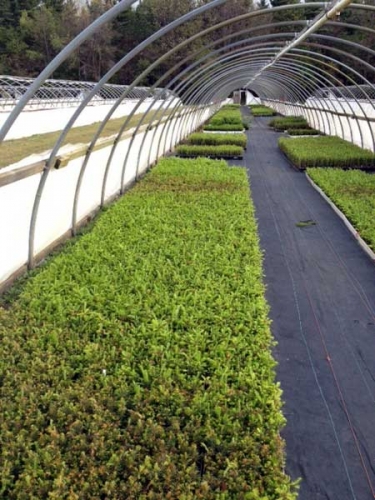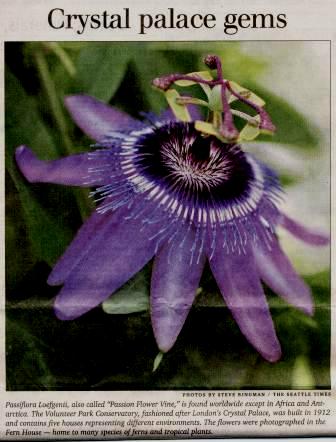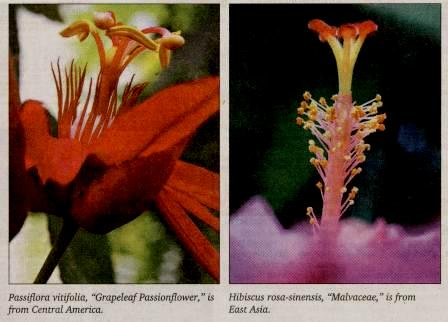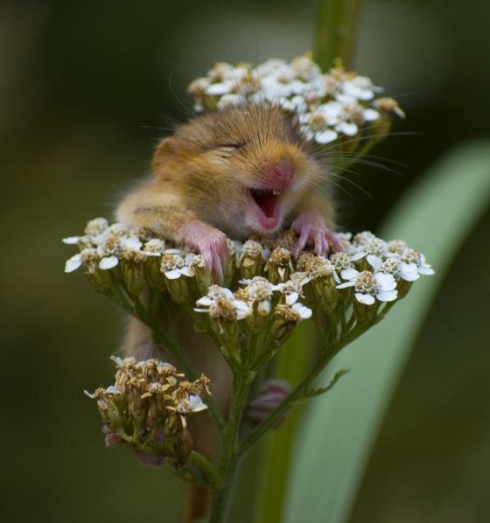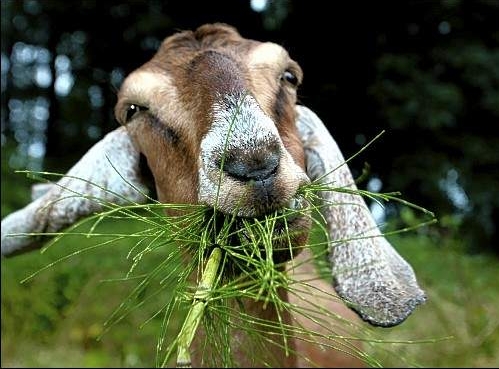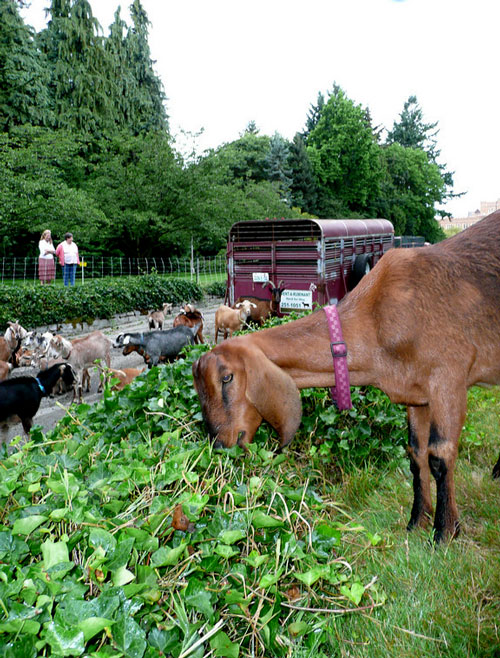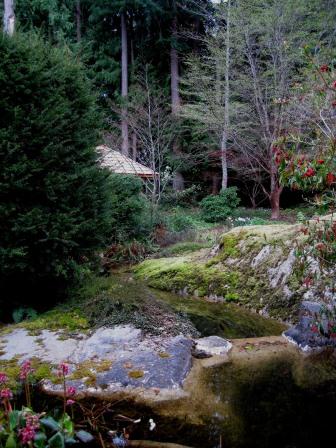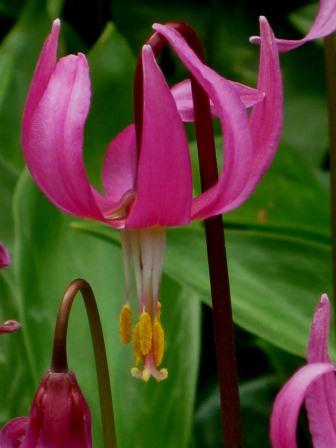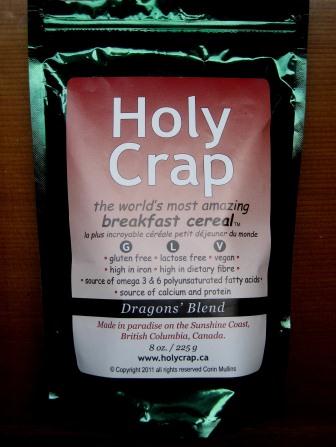Planting annual displays is not (at all) my
favorite gardening pastime, but we do some "color" around our events
building and along the garden entrance to make the area pop during our busy
season.
Those of you who install institutional or commercial color beds are familiar with the process – yank out last season’s annuals/tulips/whatever, smooth out the bed, plant new annuals, then mulch. Or…do you mulch first, then plant?
If the order of events is plant, then mulch, care must be taken not to get it all over the plants. Some over-enthusiastic students practically buried an entire display bed full of stuff last spring (more…is not always better). We spent a great deal of time unearthing the plants, having to pull the mulch away from the crown. Alternatively, if a bed is smoothed and mulched, you have a lovely blank slate to work with, but inevitably end up with the heartbreak of surface dirt chunks and some loss of mulch.
I’m not referring to planting and mulching perennial/mixed borders, veg gardens, or anything like that. Strictly annual displays. But I’d like hear from those experienced with this particular facet of horticulture: before, or after?
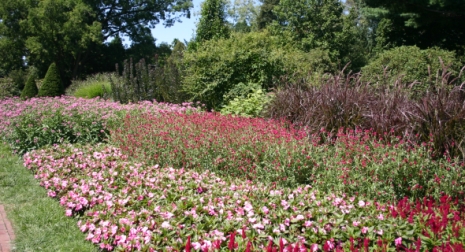
Hello, Longwood? Hello Kitty called and wants some of her pink stuff back.
(Seriously, no one does quality color like Longwood Gardens. Except Disney.)
